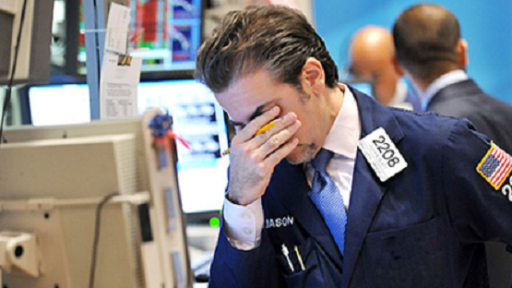
The Worst Trading Losses Of All Time

A German firm speculated on oil prices and lost $1.3 billion.
Firm: Metallgesellschaft AG
Year: 1993
Location: Germany
Amount lost: $1.3 billion
Source of the loss(es): Oil futures
Person(s) associated with loss: Heinz Schimmelbusch
The fallout: Under the leadership of CEO Heinz Schimmelbusch, German metals and engineering giant Metallgellschaft was on the brink of bankruptcy after losing $1.3 billion on speculative bets. The firm bet on an increase in oil prices in oil futures markets, but oil prices dropped instead. The CEO was ousted after the loss.
Robert Citron lost $1.7 billion for Orange County, California forcing it into Chapter 9 bankruptcy.
Year: 1994
Location: Orange County, Calif. USA
Amount lost: $1.7 billion
The source of the loss(es): Leveraged bond investments
Person(s) associated with loss: Robert Citron
The fallout: In 1994, Citron was Treasurer-Tax Collector for Orange County, California. As treasurer, Citron used a series of highly-leveraged deals that included repurchase agreements and floating rate notes. The funds he managed were worth around $8 billion, but he was counting on interest rates remaining low or else he stood to lose big time. Interest rates did rise though, and as a result, Orange County losses amounted to $1.7 billion and was forced into Chapter 9 bankruptcy.
Last month, it was revealed that JPMorgan's 'London Whale' lost the firm $2 billion on derivatives trades.
Firm: JPMorgan
Location: United Kingdom
Year: 2012
Amount lost: $2 billion (some estimate that number could grow)
The source of the loss(es): Credit default swaps
Person(s) associated with loss: Bruno Iksil
The fallout: On May 10th, JPMorgan disclosed a $2 billion dollar trading loss in the bank's Chief Investment Office in London related to derivatives trades. Bruno Iksil, a.k.a. "The London Whale," was identified in media reports before the loss was even revealed as the credit trader at the center of those trades.
JPMorgan's CEO Jamie Dimon has appeared before both the Senate Banking Committee and the House Financial Services Committee to testify about the loss revealed last month.
The Securities and Exchange Commission, the Federal Reserve, the Commodity Futures Trading Commission, the Justice Department and the FBI are all said to be looking into the trading loss.
A rogue trader lost UBS $2.3 billion on unauthorized trades in the bank's London office leading to the resignation of the CEO.
Firm: UBS
Year: 2011
Location: United Kingdom
Amount lost: $2.3 billion
The source of the loss(es): ETFs/ Delta One
Person(s) associated with loss: Kweku Adoboli
The fallout: In September 2011, UBS revealed an unexpected $2.3 billion loss believed to be caused by a lone rogue trader in the bank's London office. Kweku Adoboli, 31, who worked on UBS's Delta One desk, was identified as the alleged rogue trader.
In February, he pleaded not guilty to four counts of fraud and false accounting. He was released on bail earlier this month.
Shortly after the massive trading loss was discovered, the Swiss bank's CEO Oswald Grubel resigned from his post.
The UK's Financial Services Authority (FSA) and Switzerland's Financial Market Supervisory Authority (Finma) have both been investigating UBS' role in the trading loss.
In 1996, Sumitomo's chief trader attempted to corner the copper market and lost $2.6 billion. He went to prison.
Firm: Sumitomo Corporation
Year: 1996
Amount lost: $2.6 billion
The source of the loss(es): Copper futures
Person(s) associated with loss: Yasuo Hamanaka
The fallout: Yasuo Hamakana, who was once nick-named "Mr. Five Percent" and "Mr. Copper" because of his aggressive trading style in the copper market, caused Sumitomo to lose $2.6 billion from his unauthorized copper trades on the London Metal Exchange. As a result of his rogue trade, Hamakana was sentenced to eight years in prison in 1998. He was released in July 2005, a year before his sentence was supposed to end.
Hedge fund Amaranth collapsed in 2006 after a trader's huge bets on the natural gas futures market went bad. The fund lost $6.6 billion.
Firm: Amaranth Advisors
Location: USA
Year: 2006
Nominal amount lost: $6.6 billion
The source of the loss(es): Natural gas futures
Person(s) associated with loss: Brian Hunter
The fallout: Brian Hunter, an ex-trader with the now-defunct Amaranth hedge fund, bet on natural gas futures back in 2006 that caused the fund to lose $6.6 billion.
Jerome Kerviel lost $7.2 billion for Societe Generale and he's facing prison time.
Firm: Societe Generale
Location: France
Year: 2008
Amount lost: $7.2 billion
The source of the loss(es): Equity derivatives
Person(s) associated with loss: Jerome Kerviel
The fallout: SocGen's "rogue trader" Kerviel lost the French bank approximately $7.2 billion through arbitrage of equity derivatives from unauthorized trades.
In October 2010, he was sentenced to three years in prison. He's planning to appeal.
In 2007, Morgan Stanley lost $9 billion on disastrous subprime mortgage bets, and heads were rolling.
Firm: Morgan Stanley
Location: USA
Year: 2007
Amount lost: $9 billion
Source of the loss(es): Credit default swaps
Person(s) associated with loss: Howard "Howie" Hubler
The fallout: Hubler, now a former mortgage trader at Morgan Stanley featured in Michael Lewis' "The Big Short," lost the bank $9 billion on bets in the subprime housing market.
Even though he had insight into shorting subprime loans, he "offset it by gambling hugely on slightly better mortgages that turned out to be extraordinarily worthless," the New York Observer reported.
Hubler left the bank in October 2007. What's more is those disastrous trades at Morgan Stanley also lead to the high-profile departure co-president Zoe Cruz. Then-CEO John Mack offered to resign over the loss, but the board kept him on.
Source: Business Insider
 Trader Petar Milanov
Trader Petar Milanov Read more:
If you think, we can improve that section,
please comment. Your oppinion is imortant for us.



















